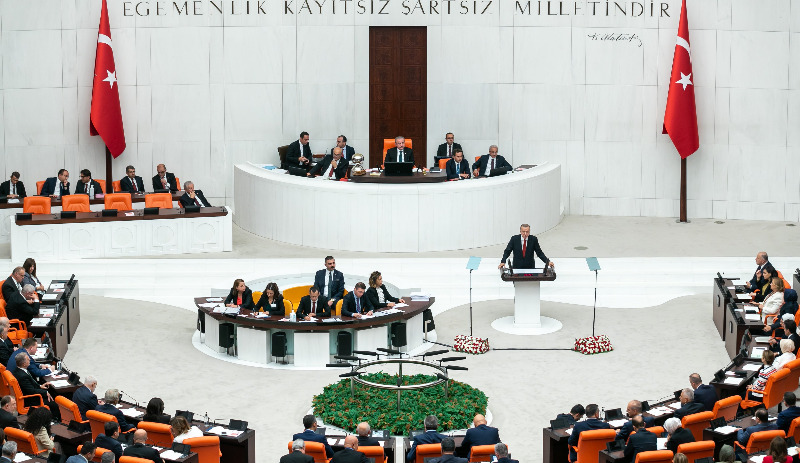The Venice Commission (European Commission for Democracy Through Law) said in a recent report that a bill of amendment regarding “false or misleading information” in Turkey further threatens freedom of expression, and called on the Turkish Grand Assembly to reject it.
The said bill is referred to by the opposition and human rights groups in Turkey as the “censorship bill.”
“The Commission is particularly concerned with the potential consequences of such provision, namely, the chilling effect and increased self-censorship, not least in view of the upcoming elections in June 2023,” the report noted.
The commission also emphasized that several terms such as “misleading information” are very broad, vague, and open to different interpretations, and that the prison sentences in the context of the provision and other fall outs would be disproportionate to its aims and could lead to “arbitrary restrictions of freedom of expression.”
It pointed out that the Turkish political administration tries to justify the proposed regulation based on examples from European countries. The report provided a comparative analysis of the bill to other countries.
Regarding the situation in Germany, France, and the United Kingdom, the report said: “There are no provisions with regard to criminal prosecution of individuals disseminating false or misleading information.”
For Sweden, the report noted that unlawful threats, which itself is a crime, on social media constituted criminal offenses. Also, receiving money and acting to benefit foreign powers by influencing public opinion on a matter of the country’s institutions or national security is punishable for two years. The report adds that to date, no prosecutions have been brought for such offense.
In Greece, the Greek Penal Code was amended to include prison sentence up to three months for people who spread anti-vaccine propaganda. It was sharply criticized not only by journalists’ unions but also by constitutional scholars. The new provision has not been enforced to this day in areas other than the COVID-19 pandemic.
The bill introduced by the ruling Justice and Development Party (AKP) orders imprisonment up to three years of those who spread disinformation and fake news both through media outlets and on social media. The proposed provision holds that a prison sentence should be issued if the published information is not based on facts and in case it concerns national security and public health, if it has been published deliberately to cause fear, panic and anxiety in the public, and if it targets public peace.
Source:gerceknews



